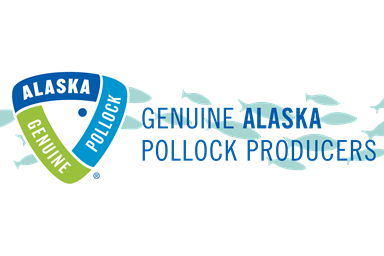Craig Morris , September 29, 2023
As Millennials Turn Forty, ‘Provenance’ of Wild Alaska Pollock Matters Greatly, as Does Sustainability and Affordability

SEATTLE, Wash.— In a shocking statistic, the oldest millennial turned forty this year and shifting how we view this demographic will be critical to converting seafood-aware consumers to seafood-craving consumers, said data experts from Ketchum Analytics at the Wild Alaska Pollock Annual Meeting this morning in Seattle. During the fifth-ever meeting, hosted by the Association of Genuine Alaska Pollock Producers (GAPP), experts Mary Elizabeth Germaine and Lauren Hasse discussed how provenance, sustainability and affordability are key in targeting both millennials and the multicultural consumer and shared that, for the first time since the inception of the yearly consumer study Wild Alaska Pollock has surpassed Haddock in terms of familiarity.
“Provenance is important to consumers. When we asked them what’s important to them in purchasing fish, over half say it’s [being] a product of the U.S. and a third say there motivated to buy knowing it’s a product of Alaska,” said Ketchum Chief Data and Strategy Officer Mary Elizabeth Germaine to the more than 200 annual meeting attendees. “That wild-caught aspect is also very important and has multiple meanings to consumers, all of which benefit Wild Alaska Pollock. Wild-caught is very much aligned with both sustainability and wild-caught is also aligned with provenance. We’re not only showing our consumers we’re sustainable but also that we’re from the U.S. and driving demand that way.”
Data also indicates an incredibly strong preference by consumers for fish from the U.S. or Canada and a notable dislike of fish from Russia and China. Specifically, 87% of consumers are likely to purchase fish from the United States and data indicates consumers actively try and avoid purchasing fish from China and Russia specifically.
“We see that when consumers learn their fish is purchased from Russia or China, they’re more likely to feel ‘confused, misled or annoyed,’” added Germaine.
For millennial and multicultural consumers, sustainability remains key to capturing their hearts and minds. 69 percent of fish-eating consumers surveyed indicate that sustainability remains “very” or “somewhat” important, and that sustainability isn’t just about the generic term, but rather the components of sustainability like ocean health and future supply.
“We saw an 8-percentage-point increase between 2021 and 2022 in fish eaters saying sustainability is important to their fish purchases,” said Director of Ketchum Analytics Lauren Hasses. “Sustainability is even more important to millennials. 82% say sustainability is important to them when they’re purchasing foods and they’re actively researching it. They are looking into the companies they’re buying from and if they’re not up to par, 15% say they are no longer purchasing.”
As the oldest millennial turns forty this year, Germaine and Hasse also emphasized the need to rethink how we view millennial consumers and incorporate thinking around “parenthood” into marketing and messaging.
“60% of that millennial audience is a parent, that is significantly higher than the general population. So, thinking about it from that parental mindset is going to be critical to reaching our consumer,” added Germaine.
Affordability remains top of mind for fish-eaters and, in particular, millennial consumers, but there needs to be balance in the way affordability is referenced in marketing.
There’s opportunity to lean into that ‘value story,’ but if you lean too far into affordability, you may sacrifice some attributes of taste and quality—so it’s all about finding the right balance,” explained Germaine.
For Gen Z, the Wild Alaska Pollock must think about a generation prone to define themselves in higher volumes as ‘multicultural’. Both Hasse and Germaine emphasized that familiarity in both multicultural and millennial demographics remains high—about 50 percent say they are familiar with the fish—but now the opportunity for Wild Alaska Pollock is to take that familiarity and through more education around provenance and other attributes, drive increased demand for the fish.
In video remarks opening the day, both Alaska Senator Lisa Murkowski and Alaska Senator Dan Sullivan noted that provenance is on their minds when closing the ‘loophole’ for Russian-caught fish to enter the U.S. market.
“If there was ever a time to call out Russia, it’s right now,” said Senator Murkowski, addressing the audience and opening the Annual Meeting. “This has gone on for far too long.”
The meeting once again brings together representatives across all segments of the Wild Alaska Pollock industry for a day-long agenda at the Four Seasons, Seattle. GAPP would like to thank its current sponsors: USI Insurance Services (Title Sponsor); Alaska Airlines, Alaska Seafood Marketing Institute, Arctic Storm Management Group LLC, Arthur J. Gallagher & Co., Beck Pack Systems, Glacier Fish Company, Global Seas, and UniSea (Gold Level Sponsors); American Seafoods, Aquamar, Gorton’s Seafood, Highland Refrigeration, Lafferty’s EMS, Marine Stewardship Council, NORPEL, Port of Seattle, Trans-Ocean Products, Trident Seafoods, Urner Barry and Westward Seafoods (Silver Level Sponsors); Alaska Marine Lines, Alaskan Observers, Aleutian Pribilof Island Community Development Association (APICDA), Baader Food Processing Machinery, Clark Nuber, Global Seafood Alliance, Golden Alaska Seafoods, High Liner Foods, ICR, Inc., Islandsbanki, Ketchum, Northwest Farm Credit Services, and Petro Marine (Bronze Level Sponsors); and Alaska Fisheries Development Foundation, Angulas Aguinaga, Bank of America, Coastal Villages Region Fund, Neptune Snacks, Perkins Coie LLP, and Restaurant Depot (Supporting Sponsor).

